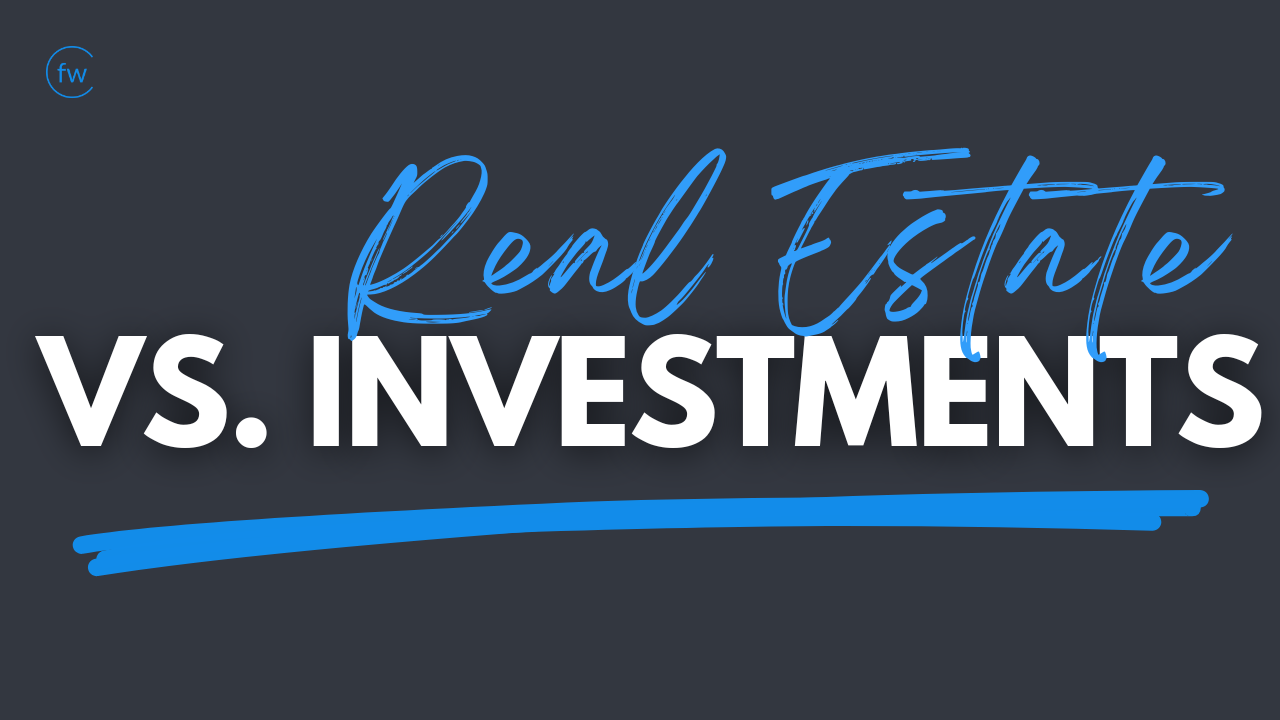How Much Should You Have in Real Estate vs. Investments?
Feb 03, 2026
Real estate or stock market?
It’s one of the biggest debates in wealth-building — and one that every high-income earner eventually faces.
Some swear by rental properties and depreciation write-offs. Others are die-hard index investors. But if you're a growth-focused entrepreneur or professional aiming for true financial freedom, how do you actually decide the right balance between real estate and traditional investments?
Let’s break it down.
What Counts as Real Estate?
When we talk about “real estate” in this conversation, we’re not just talking about your primary home. We mean:
- Rental properties (long-term or short-term)
- Commercial real estate
- House flips
- Farmland leasing
- Short Term Rental portfolios
These are typically direct ownership strategies, with all the tax benefits — and all the hands-on risk.
What Counts as Traditional Investments?
On the flip side, traditional investments include:
- Stocks
- Bonds
- ETFs (Exchange-Traded Funds)
- Mutual Funds
- Tax-advantaged retirement accounts (401(k), Roth IRA, etc.)
These are what you’d typically find in a brokerage or retirement account — and they offer a very different experience from owning property.
Why This Balance Matters
Your mix of real estate and investments isn’t just about preferences. It impacts:
- ✅ Liquidity and accessibility
- ✅ Passive income vs. cash flow drain
- ✅ Taxes, depreciation, and planning strategies
- ✅ Risk diversification
- ✅ Your time, energy, and stress levels
- ✅ Long-term legacy and wealth transfer
Real Estate: Pros and Cons
✔️ Pros
- Tangible asset you can see and control
- Doesn’t fluctuate daily like the stock market
- Tax advantages (1031 exchanges, depreciation, bonus depreciation)
- Strong inflation hedge
❌ Cons
- Illiquid — takes time to sell or refinance
- Cash flow isn’t guaranteed
- Time-intensive (even with property managers)
- Local market risks
- Not as diversified
- Not truly passive (ask any landlord)
Real estate can be powerful, but don’t confuse leveraged rental income with a real passive portfolio. You’re still the boss — and the risk-taker.
Traditional Investments: Pros and Cons
✔️ Pros
- Highly liquid and easy to access
- Broad diversification with lower capital requirements
- Simpler to automate and scale
- Tax-efficient if structured well (Roth, IRA, etc.)
- Emotional detachment (if you stay the course)
❌ Cons
- Market swings can spook even seasoned investors
- Less perceived control
- Fewer tax levers unless you’re strategic
Reality check: Many underestimate how powerful compound interest is — especially with consistent investing in low-cost diversified portfolios.
How to Decide: Real Estate vs. Investments
This isn’t an either/or debate. It’s about strategic allocation that reflects your life, risk tolerance, and long-term plan.
Here’s the framework we use with our clients at Fit Wealth Advisors:
- Cash Flow Needs
- Can you float a rental property if tenants disappear or a pipe bursts?
- Always plan for 6–12 months of reserves.
- Liquidity Preference
- Need flexibility? → Prioritize traditional investments.
- Comfortable locking money up? → Real estate can work.
- Tax Planning
- Are you maxing out your 401(k), HSA, and IRA?
- Using depreciation or bonus depreciation strategically?
- Time & Energy
- Want to be a landlord or just want cash flow?
- Are you willing to deal with contractors, tenants, and property managers?
- Stage of Life
- Younger investors can often tolerate more illiquidity.
- Pre-retirees may need income and access to capital.
- Traveling a lot? Maybe skip the fix-and-flip dream for now.
- Know Yourself
- Grew up around real estate? You might lean into that skill.
- Prefer simplicity? Index investing might be more your lane.
Final Thoughts: Don’t Wing It — Diversify It
There’s no one-size-fits-all. But here’s what we always recommend:
- Understand your cash flow
- Build your reserves
- Diversify intentionally
Your wealth should support your lifestyle — not trap you in it.
🎧 Listen to the Full Episode
Want the full breakdown?
🎙️ Listen to Episode: "How Much Should I Have in Real Estate vs. Investments?"
We dive deeper into:
- How real estate fits into your tax strategy
- When it's worth going "all in" (and when it's not)
- How our high-income clients strike a balance that works for them
📅 Ready to Get Your Allocation Right?
Let’s build a plan that reflects your real life — not just a spreadsheet.
👉 Book a Clarity Call with Amanda
🔗 Stay Connected
Follow Amanda on Instagram @thefitfinancial_ for financial tips, client stories, and lifestyle content for ambitious, high-earning women.
The Fit Wealth Show is brought to you by Plan Group Financial, Inc. (PGF) d/b/a Fit Wealth Advisors. PGF d/b/a Fit Wealth Advisors is an investment adviser registered under the Investment Advisers Act of 1940. Registration as an investment adviser does not imply any level of skill or training. This presentation has been provided for informational purposes only and is not intended as legal or investment advice or a recommendation of any particular security or strategy. The investment strategy and themes discussed herein may be unsuitable for investors depending on their specific investment objectives and financial situation. Past performance is not indicative of future results.
